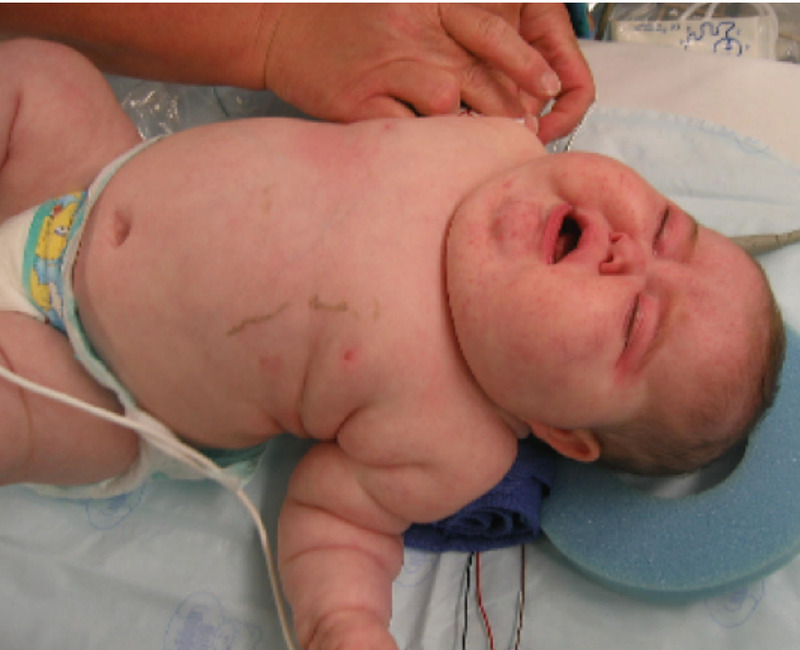Playlist
Show Playlist
Hide Playlist
Review of Adrenal Excess and Adrenal Deficiency
-
Slides 01-02-02 Adrenal Pituitary.pdf
-
Download Lecture Overview
00:00 Let's talk about adrenal glands. 00:04 We're going to review adrenal excess and adrenal deficiency. 00:08 Starting with adrenal excess, these manifest as excesses of cortisol in Cushing syndrome, excesses of adrenaline in pheochromocytoma, and increased aldosterone in the condition known as primary aldosteronism. 00:22 Deficiency states primarily involve all three hormones as well as androgens. 00:27 This condition is known as Addison's disease. 00:31 Cushing syndrome may present with a low or normal ACTH with an elevated cortisol. 00:37 Causes may be iatrogenic in cases of exogenous steroid use. 00:42 This usually is where a prednisone equivalent of greater than 10-20 milligrams per day are used. 00:48 This can be administered either orally, intravenously, intramuscularly, subcutaneously, or intraarticularly and may even be in the form of creams used in the treatment of chronic dermatological conditions. 01:04 Endogenous causes include ACTH dependent and ACTH independent. 01:11 ACTH dependent Cushing syndrome is caused by ACTH-secreting pituitary adenomas or ACTH-secreting carcinomas. 01:21 ACTH independent causes include adrenal adenomas and adrenal carcinomas. 01:28 Let's go through an algorithm to confirm the diagnosis of Cushing syndrome. 01:33 When you clinically suspect Cushing syndrome, the first step is to exclude exogenous glucocorticoids. 01:39 Once that's done, we move on to initial testing. 01:43 These tests could include a 24-hour urinary free cortisol test, a late-night salivary cortisol test, and a 1 milligram dexamethasone suppression test. 01:56 Of these three tests, the first two, the 24-hour urine free cortisol and the late-night salary cortisol tests needed to be repeated if they're positive to confirm the diagnosis. 02:09 Moving down the algorithm, if these tests are normal, Cushing syndrome is unlikely. 02:14 On the left side of the algorithm, if these tests are abnormal, the next step is to exclude physiologic hypercortisolism. 02:23 What is physiological hypercortisolism? That's essentially increases in cortisol that are caused by psychological stress or severe illness and can certainly muddy the picture in the diagnosis of Cushing syndrome. 02:37 But once you have excluded those entities, you then move down to additional testing which can include imaging. 02:44 If the imaging is positive, you've confirmed your diagnosis of Cushing syndrome. 02:49 If however it's normal, repeating the initial test to confirm that they were indeed positive is probably the next step. 02:57 If these are normal, then crushing syndrome is unlikely. 03:01 The treatment of Cushing syndrome consists of the surgical removal of the adrenal gland or the pituitary mass or the ectopic tumor that is producing ACTH. 03:10 Bisphosphonates for low bone density are a good idea because long-term cortisol would have invariably led to osteoporosis.
About the Lecture
The lecture Review of Adrenal Excess and Adrenal Deficiency by Michael Lazarus, MD is from the course Adrenal Gland Disorders. It contains the following chapters:
- Adrenal Diseases
- Cushing Syndrome
Included Quiz Questions
Which of the following could cause ACTH-independent Cushing syndrome?
- Adrenal adenoma
- Pituitary macroadenoma
- Pheochromocytoma
- Small cell lung carcinoma
- Insulinoma
Which of the following is correct when following the algorithm to confirm Cushing syndrome?
- Initial testing is performed when exogenous glucocorticoid use has been excluded.
- The first step includes the performance of a 1 mg dexamethasone suppression test.
- Initial workup includes diagnostic imaging tests.
- A positive imaging test result is followed by a repetition of the initial tests that yielded abnormal results.
- A positive 24-hour urine free cortisol test result indicates abnormal initial testing results and confirms the diagnosis.
Customer reviews
5,0 of 5 stars
| 5 Stars |
|
5 |
| 4 Stars |
|
0 |
| 3 Stars |
|
0 |
| 2 Stars |
|
0 |
| 1 Star |
|
0 |





